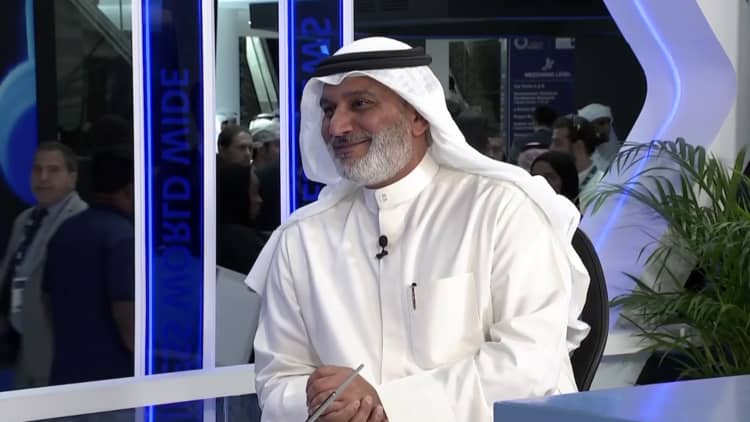Peak crude demand is fueling anger and argument in the world of oil
An off-shore oil platform off the coast in Huntington Beach, California on April 5, 2020.
Leonard Ortiz | MediaNews Group | Orange County Register | Getty Images
It’s been a war of words and numbers between two major players in the energy industry – the International Energy Agency and OPEC – as they spar over the future of something crucial to crude producers’ survival: peak oil demand.
Peak oil demand refers to the point in time when the highest level of global crude demand is reached, which will be immediately followed by a permanent decline. This would theoretically decrease the need for investments in crude oil projects and make them less economical as other energy sources take over.
For oil producing countries and companies, it’s existential.
That’s why when the chief of the IEA, an intergovernmental organization that advocates for oil consuming countries, predicted that peak oil demand would be reached by 2030 and hailed the decline of crude as a “welcome sight,” OPEC was furious.
“Such narratives only set the global energy system up to fail spectacularly,” OPEC Secretary General Haitham al-Ghais said in a Sept. 14 statement. “It would lead to energy chaos on a potentially unprecedented scale, with dire consequences for economies and billions of people across the world.” He accused the agency of fear-mongering and risking the destabilization of the global economy.
More broadly, the spat reflects the ongoing clash between climate change concerns and the need for energy security. That juxtaposition was on full display at ADIPEC – the annual gathering whose name stood for Abu Dhabi International Petroleum Exhibition Conference until this year, when it was quietly changed to Abu Dhabi International Progressive Energy Conference.

The United Arab Emirates will be hosting the COP28 climate summit in November and has been marketing its sustainability campaigns, all the while ramping up its crude production capacity in preparation for what it expects to be a growth in future demand. The UAE is OPEC’s third-largest oil producer.
CEOs of oil majors and state oil producers stressed the need for a dual approach, insisting their companies were part of the solution, not the problem, and that an energy transition is not possible without the security and economic support of the hydrocarbons sector.
“I don’t know if we’re going to have peak oil in 2030. But it’s very dangerous to say that we have to reduce investment because that is against the transition,” Claudio Descalzi, CEO of Italian multinational energy company Eni, said Monday during a panel hosted by CNBC’s Steve Sedgwick.
He warned that if oil investment – and therefore supply – drops and fails to meet demand, prices will surge, crippling the economy.
Descalzi acknowledged that burning fossil fuels “is producing lots of CO2,” but added “we cannot shut down everything and rely just on renewables and that is the future, no. It’s not like that. We have infrastructure, we have investment…
Read More: Peak crude demand is fueling anger and argument in the world of oil
